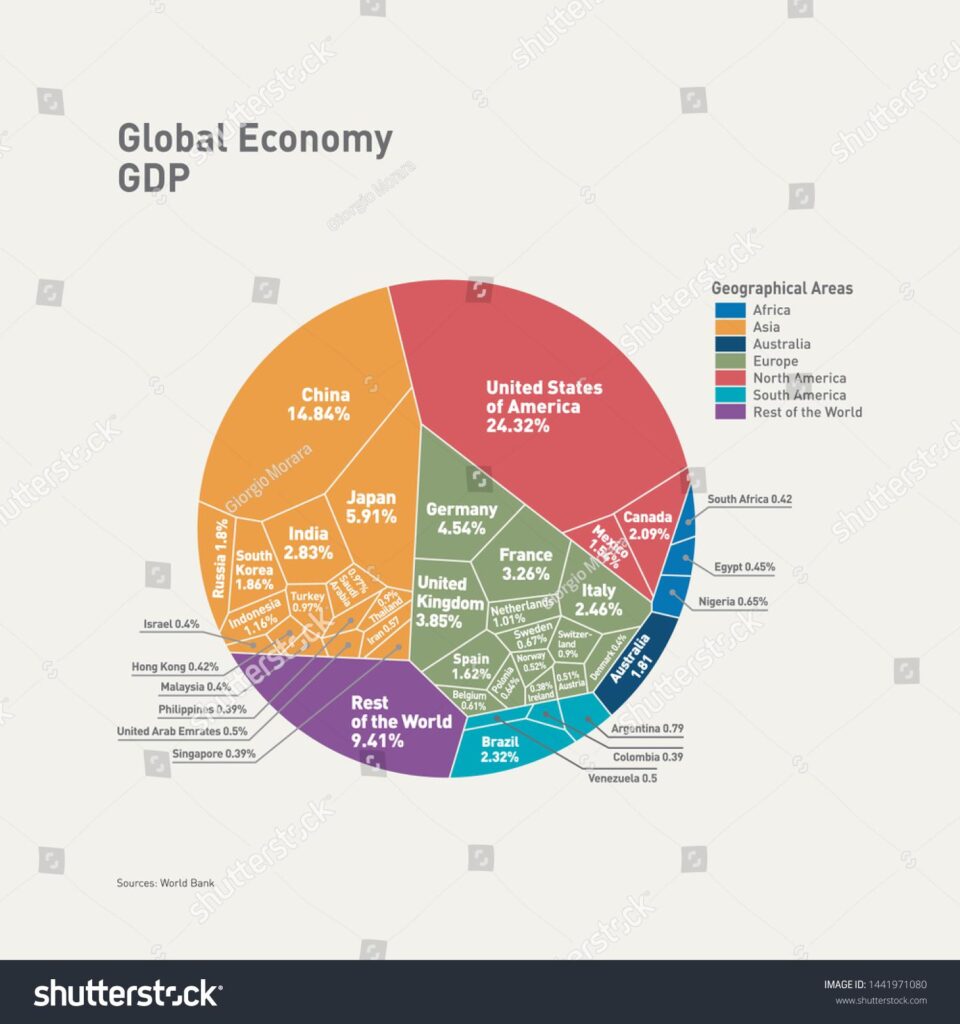Global Economic Outlook: Navigating the Challenges of Rising Tariffs
The International Monetary Fund (IMF) has recently issued a critical alert regarding a significant slowdown in the global economy, primarily driven by an increase in tariffs that are altering the landscape of international trade. A recent report featured in the Wall Street Journal emphasizes that these protectionist policies are not only disrupting supply chains but also undermining both investment and consumer confidence. As nations confront the consequences of these trade barriers, experts foresee a difficult economic environment characterized by reduced growth rates and increased market uncertainties. This article explores the implications of the IMF’s findings, focusing on how tariffs are ushering in a new phase of economic realignment and what this means for countries worldwide.
Escalating Trade Conflicts: The Impact on Economic Growth
As tensions surrounding global trade intensify, recent policy changes and tariff implementations have raised alarms about their long-term effects on economic growth. Countries involved in ongoing trade disputes have started to impose retaliatory tariffs, creating a chain reaction that threatens to hinder international commerce. Economic experts advocate for open dialogue and diplomatic solutions, highlighting that maintaining accessible markets is crucial for sustained economic vitality.
The IMF has warned that these newly imposed tariffs could lead to a significant decline in global economic output. The ramifications of widespread tariff applications are multifaceted, affecting various sectors differently. Key considerations include:
- Higher Consumer Costs: Tariffs can inflate prices on imported products.
- Strain on Manufacturers: Domestic producers may find it challenging to sustain profit margins due to increased raw material costs.
- Disruptions in Supply Chains: Sourcing materials from impacted regions can escalate logistics expenses.
| Impact of New Tariffs | Short-term Effects | Long-term Outlook |
|———————–|——————–|——————-|
| Consumer Prices | Increases due to added costs | Potential reduction in purchasing power |
| Domestic Manufacturing | Initial growth due to protectionism | Risk of stagnation if costs remain elevated |
| Employment | Possible job creation within protected sectors | Long-term uncertainty regarding global competitiveness |
IMF’s Warning: A Call for Action Amidst Protectionism
The IMF has raised concerns about an impending global economic downturn linked closely with rising protectionist measures across nations. As countries increasingly resort to tariffs as tools for strengthening domestic economies, worries mount over their long-lasting impacts. Several critical factors contributing to this precarious situation include:
- Decline in International Trade: A marked drop-off in cross-border trading activities poses risks for future growth.
- Increased Consumer Expenses: Higher prices resulting from tariffs place additional burdens on consumers.
- Supply Chain Disruptions: Protectionist policies can severely disrupt global supply chains, complicating operational efficiency for businesses.
In its latest report, the IMF provided projections indicating potential declines in economic growth rates over upcoming years influenced by such protective measures. Nations heavily engaged in trade conflicts often face adverse effects extending beyond their borders—leading to broader slowdowns that could diminish overall output significantly.
Projected Growth Rates by Country (2024)
| Country | Projected Growth Rate (%) |
|——————|—————————|
| United States | 2.1 |
| China | 4.5 |
| European Union | 1.8 |
| India | 6.0 |
These statistics highlight how interconnected our world economy is; actions taken by one nation can create ripple effects felt globally. The IMF’s assessment serves as an urgent reminder for policymakers worldwide to reconsider protectionist strategies and instead pursue cooperative approaches aimed at fostering stability and promoting sustainable growth.
Strategic Approaches: Adapting Amidst Global Challenges
As we face potential slowdowns fueled by increasing tariffs, it is essential for nations to adopt strategic frameworks designed not only to mitigate adverse impacts but also capitalize on emerging opportunities within this shifting landscape. Implementing diversification strategies will enable countries to lessen reliance on singular markets while promoting bilateral and multilateral agreements fosters collaborative relationships essential during turbulent times.
Investments directed towards enhancing domestic innovation and research capabilities will bolster national competitiveness—allowing countries access into new technologies or industries capable of driving progress even amid adversity.
Furthermore, prioritizing resilience within supply chains through local production enhancements will reduce vulnerabilities associated with disruptions stemming from globalization challenges; improving infrastructure domestically ensures smoother logistics operations while establishing robust social safety nets becomes vital during periods when industries or workers face hardships due directly or indirectly from changing market conditions.
In today’s rapidly evolving environment where adaptability reigns supreme alongside proactive measures taken collectively among stakeholders—governments must ensure long-lasting prosperity remains attainable despite growing interdependence across borders globally!
Conclusion: Embracing Change While Seeking Stability
As we navigate through an increasingly complex global economy shaped by rising tariffs alongside heightened protectionism—the warning issued by the International Monetary Fund underscores urgent calls toward strategic policy responses necessary moving forward! The potential repercussions impacting trade dynamics along with investment patterns necessitate careful consideration as economies strive towards maintaining equilibrium amidst newfound challenges ahead!
While obstacles lie ahead requiring vigilance among policymakers alike—it simultaneously presents opportunities ripe enough warrant innovative solutions capable reshaping our collective financial futures! Stakeholders must remain alert concerning developments influencing both financial markets & international relations alike throughout this unfolding narrative!
